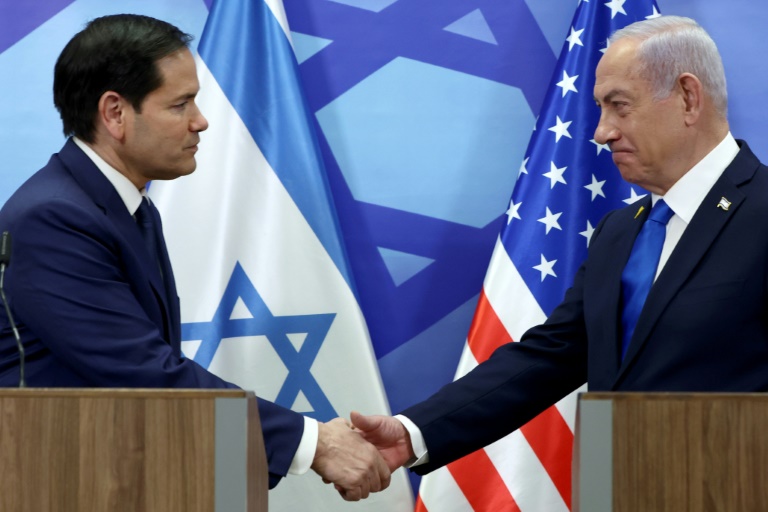Israeli Prime Minister Benjamin Netanyahu is set to convene the Security Cabinet on Monday to discuss Israel’s position on the upcoming Phase 2 negotiations with the Hamas terrorist organization in the Gaza Strip. The meeting follows ongoing diplomatic efforts involving key international stakeholders, including the United States, Egypt, and Qatar.
Israel’s Negotiation Team Heads to Cairo
Following a phone call with U.S. Mideast envoy Steve Witkoff on Sunday evening, Netanyahu directed Israel’s negotiation team to travel to Cairo on Monday to continue discussions on implementing the first phase of the Gaza ceasefire agreement.
Currently, Israeli negotiators in Egypt and Qatar are focused solely on Phase 1, which involves a truce and hostage exchanges. However, after Monday’s Security Cabinet meeting, the team will receive directives regarding the next stage of talks.
Coordination with the U.S. Administration
During a joint press conference in Yerushalayim on Sunday, Netanyahu emphasized Israel’s “full cooperation and coordination” with the U.S. administration regarding the next phase of the ceasefire. Speaking alongside U.S. Secretary of State Marco Rubio, Netanyahu reaffirmed a shared strategy between the two allies.
“We have a shared strategy, which cannot always be detailed to the public—including when the gates of hell will open. And they will open if all our hostages are not returned, every last one of them,” Netanyahu stated.
Israel’s Demands in Phase 2 Talks
Israel is expected to demand the expulsion of Hamas’s leadership from Gaza, the dismantling of its terrorist infrastructure, and the full release of all remaining hostages. However, officials believe that Hamas is likely to reject these demands, which could complicate negotiations.
U.S. envoy Steve Witkoff confirmed on Sunday that Phase 2 discussions were already underway at a yet-to-be-determined location. He described his calls with Netanyahu, Qatari Prime Minister Sheikh Mohammed bin Abdulrahman Al Thani, and Egyptian intelligence chief Major General Hassan Mahmoud Rashad as “very productive and constructive.”
According to Witkoff, the parties discussed “the sequencing of Phase 2, setting forth positions on both sides, so we can understand where we are today and continue talks this week to ensure the successful completion of Phase 2.”
Hostage Releases and Ongoing Truce
On Saturday, three more hostages held by Hamas in Gaza were released and reunited with their families. The freed hostages include American-Israeli Sagui Dekel-Chen, 36; dual Russian-Israeli citizen Alexander (“Sasha”) Troufanov, 29; and Argentine-Israeli national Iair Horn, 46.
This release marks the sixth round of hostage exchanges under Phase 1 of the ceasefire agreement, which began on January 19 and is set to end on March 1.
Trump’s Warning and U.S. Position
Former U.S. President Donald Trump has played a vocal role in pressuring Hamas for additional hostage releases. Netanyahu’s government is expected to deliberate soon on Israel’s response to Trump’s recent call for Hamas to release all remaining captives.
Netanyahu praised Trump’s leadership, stating that the reinforcement of IDF troops around Gaza and Trump’s firm stance contributed to the latest hostage releases, despite Hamas’s previous threats to delay the exchange.
On Saturday, Trump congratulated the freed hostages but reiterated that their release did not meet his full demand.
“Hamas has just released three hostages from GAZA, including an American citizen. They seem to be in good shape! This differs from their [Hamas’s] statement last week that they would not release any hostages,” Trump wrote on Truth Social.
He added, “Israel will now have to decide what they will do about the 12:00 O’CLOCK, TODAY, DEADLINE imposed on the release of ALL HOSTAGES. The United States will back the decision they make!”
The Road Ahead for Phase 2
According to official estimates, 73 hostages remain in Hamas captivity in Gaza after 500 days. Of these, 70 were abducted during Hamas’s October 7, 2023, cross-border attack in southern Israel. As Israel prepares for Phase 2 negotiations, the outcome of Monday’s Security Cabinet meeting will be pivotal in determining the next steps.
With tensions high and diplomatic efforts intensifying, Israel’s stance in the upcoming talks will shape the future of the ongoing truce and the broader security situation in the region.
FAQ’s
What is the purpose of Netanyahu’s Security Cabinet meeting on Monday?
The meeting aims to discuss Israel’s stance on the Phase 2 negotiations with Hamas and provide directives to Israel’s negotiation team.
What is Phase 2 of the Gaza ceasefire agreement?
Phase 2 involves negotiations on further ceasefire terms, hostage releases, and demands for the dismantling of Hamas’s terrorist infrastructure.
Who is involved in the Phase 2 negotiations?
Key stakeholders include Israel, Hamas, the U.S., Egypt, and Qatar, with U.S. envoy Steve Witkoff playing a crucial diplomatic role.
What are Israel’s main demands in the Phase 2 talks?
Israel is demanding the expulsion of Hamas leadership from Gaza, the dismantling of its military capabilities, and the release of all hostages.
How is the U.S. supporting Israel in the negotiations?
The U.S. is coordinating closely with Israel, with Secretary of State Marco Rubio and former President Donald Trump pressuring Hamas for more hostage releases.
What has been achieved so far in Phase 1 of the ceasefire?
Phase 1 has resulted in multiple hostage exchanges, with six rounds of releases, including three more hostages freed on Saturday.
What challenges could arise in Phase 2 negotiations?
Hamas is expected to reject Israel’s demands, and there are concerns over escalating violence if negotiations fail.
What did Trump mean by the “gates of hell” warning?
Trump indicated that serious consequences could follow if Hamas fails to release all hostages, suggesting potential military or diplomatic actions.
How many hostages remain in Hamas captivity?
According to estimates, 73 hostages remain in Gaza, including those abducted in the October 7, 2023, Hamas attack.
What happens next after the Security Cabinet meeting?
The Israeli negotiation team will receive new directives and proceed with talks in Cairo, shaping the next steps in the truce discussions.
